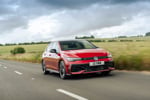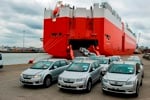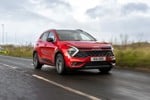Models which emit under 120 g/km CO2 or less will be exempt, while those over 225 g/km will pay £25 a day to enter the recently enlarged central London zone. Most other cars and commercial vehicles will still pay £8 a day.
The Society of Motor Manufacturers and Traders said the change raises fundamental questions about the scheme's aims; ‘is it to reduce congestion, raise revenue, penalise drivers of larger cars or to cut emissions?’
On the positive side, exemption criteria will become technology neutral. Regardless of engine type, all cars emitting less than 120g/km, including petrol and diesel models, will pay nothing to enter the zone.
The announcement comes as good news for cars like the Honda Civic Hybird, Toyota Aygo and Peugeot 107, which will all escape the charge. Citroen will have 23 of its models declared congestion charge exempt if proposed changes take place. The French manufacturer has seven versions of the C1 city car, four C2s and six C3s which produce less than 120g/km of carbon dioxide and fall into band B.
Models like the Porsche Cayenne, BMW X5, and Range Rover Sport will be hit with the maximum £25.
The 90% reduction for residents living within the congestion zone will also be stopped for owners of cars emitting more than 225 g/km of CO2. That means a bill of up to £5,130 a year more than they are paying now.
“Londoners will be sceptical about the motives for this significant change to congestion charging and many will fear this is already a done deal,” said SMMT chief executive Christopher Macgowan.
“However, we will push for a re-think on these totally disproportionate proposals. A family whose car emits one g/km more than their neighbour's could end up paying thousands of pounds more a year. That can't be right,” he added.
Alec Murray, non-executive chairman of the Retail Motor Industry Federation (RMIF), said: "The emissions of most private cars driven in central London fall below the highest proposed emissions-based congestion charge level , so it is questionable if the proposed plan will achieve its aim of further reducing central London traffic levels."
"More and more new vehicles now on sale would be eligible for a congestion charge waiver under the new proposals since their emissions are lower than the limit being suggested, making the new system a poor way to cut down on overall traffic numbers. The proposed measures ignore the environmental impact of London’s taxis and buses, currently exempt from the congestion charge.
"Many of London’s 22,000 strong-black cab emit far more harmful particulates than a comparable saloon car. There are also 44,000 minicabs, and 8,000 buses, most running on diesel, producing 200,000 tonnes of carbon per year. Will measures be taken to deal with the harmful environmental emissions produced by these vehicles?" added Murray.













Login to comment
Comments
No comments have been made yet.